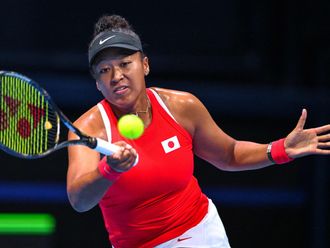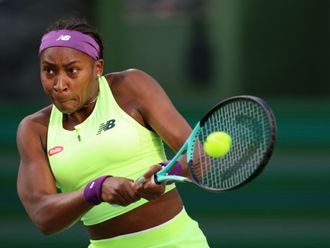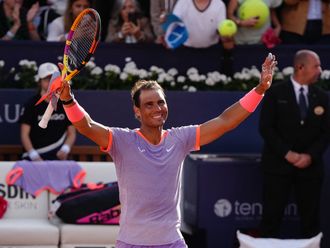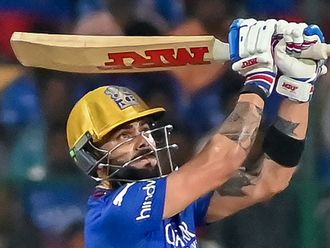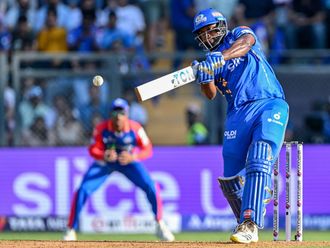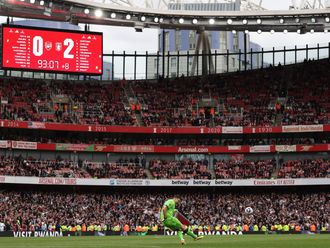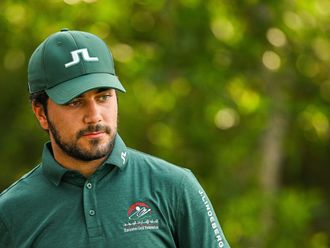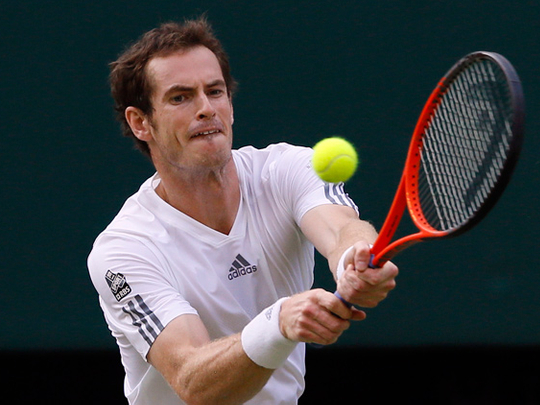
London: Andy Murray has backed Wimbledon’s unique seeding system after he was given a ranking rise that could aid his defence of the men’s singles title.
Murray, who starts his bid to retain the Wimbledon crown against Belgium’s David Goffin on Monday, was seeded third despite being ranked fifth in the world, meaning his path to the latter stages of the tournament is less daunting than it might have been.
That two-place advantage, owing to Wimbledon’s decision to change their seedings based on each player’s record on grasscourts, means Murray cannot face tournament favourite Novak Djokovic until the last four and world number one Rafael Nadal until the final.
Switzerland’s Stan Wawrinka, the world number three who won the Australian Open earlier this year, is the biggest loser as his seeding drops to fifth to accommodate Murray, as well as Roger Federer, who moves up to fourth.
Wimbledon’s seeding system is different to the other three Grand Slams, who all use the ATP Tour rankings to decide seeds, prompting some critics to suggest they should fall in line with the Australian, French and US Opens.
But Murray, the first British man to win Wimbledon for 77 years, disagrees. “To be honest I think the way they do it is correct with the seedings,” Murray said.
“Some people might say that because my seeding’s obviously moved up, but there are so few tournaments on grass now that there are so few points up for grabs on the surface that it is in a way a specialist surface.
“Not many guys, some guys like [Tommy] Robredo for example will only play one tournament a year on grass.
“So I think it is relevant the way the players perform on it, in terms of the seedings and how deep guys can go in the event.
“So I like the way they do the seedings, it makes this period, for the guys that do well, it helps.
“Some people like it, some don’t — but being seeded third is definitely better than being seeded fifth.”
Meanwhile, Britain’s Samantha Murray, no relation to the reigning men’s champion, admits she faces the biggest match of her life after being handed a Wimbledon first round clash against Maria Sharapova.
Murray, a 26-year-old wild card entry, is ranked 237 places below French Open champion and world number five Sharapova. “When I first heard the draw I was a bit shocked, but I just see it as a great opportunity to play someone of her calibre,” Murray said.
“I assume I’ll be on a big court as well so it’s just a dream.
“I’ve never played anybody in Sharapova’s league; the highest ranked opponent I’ve ever had has been around the 50 mark.”
Murray is one of several British players to benefit from wild card entry into Wimbledon, but Bob Brett, the Australian coach recently hired as the Lawn Tennis Association’s (LTA) new player development director, is adamant that won’t always be the case.
Brett, who has coached Wimbledon champions Boris Becker and Goran Ivanisevic, has been brought in to improve the standard of coaching and performance in British tennis.
Dan Evans, James Ward and Dan Cox are among those who have also received wild card entries to Wimbledon, where they will now receive £27,000 even if they lose in the first round. Confirming he would examine the wild card process in his new role, Brett said: “I would say that it’s important that players earn the right to a wild card, it’s important that they deserve it and must work hard for it.
“It’s always an aspect of comment, I can’t judge it today, but I’m sure that next year, or any other time, I will be aware of everything, and I will also consult the team as to what their thoughts are, and then come up with a decision.”



